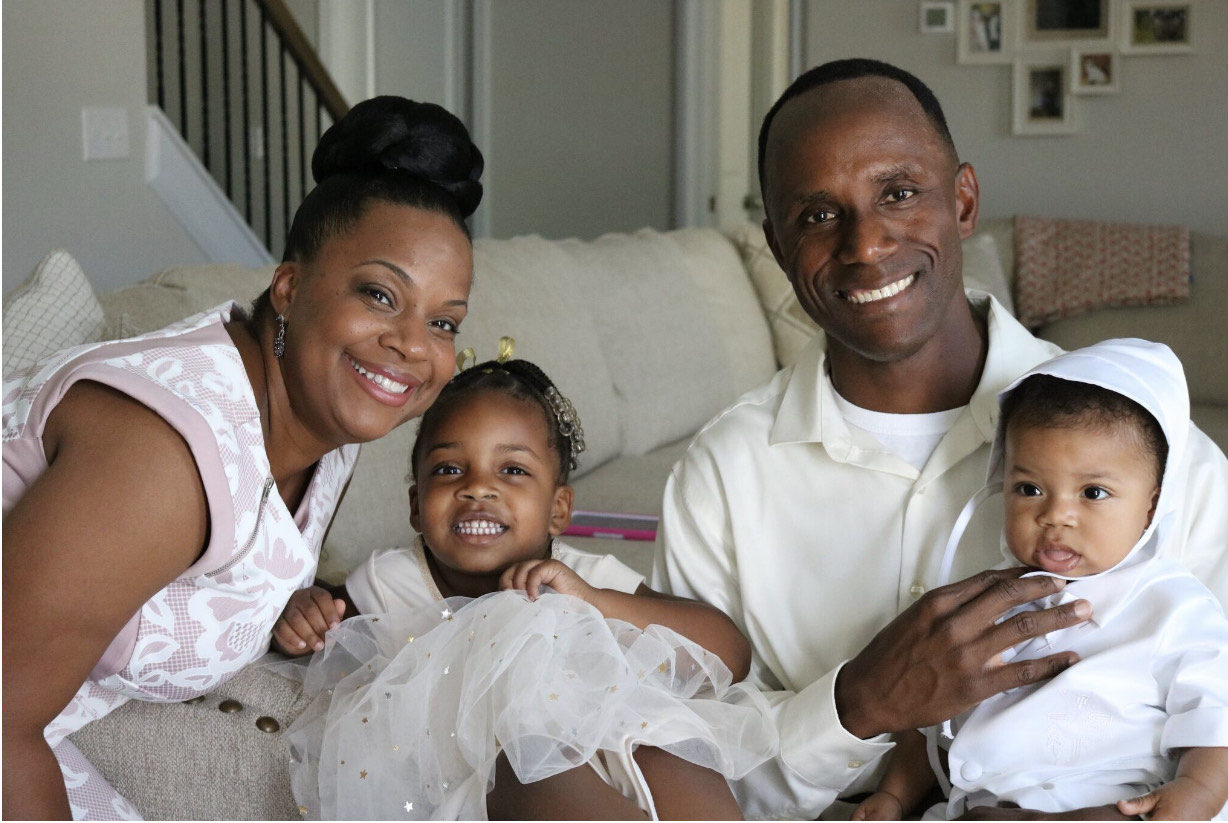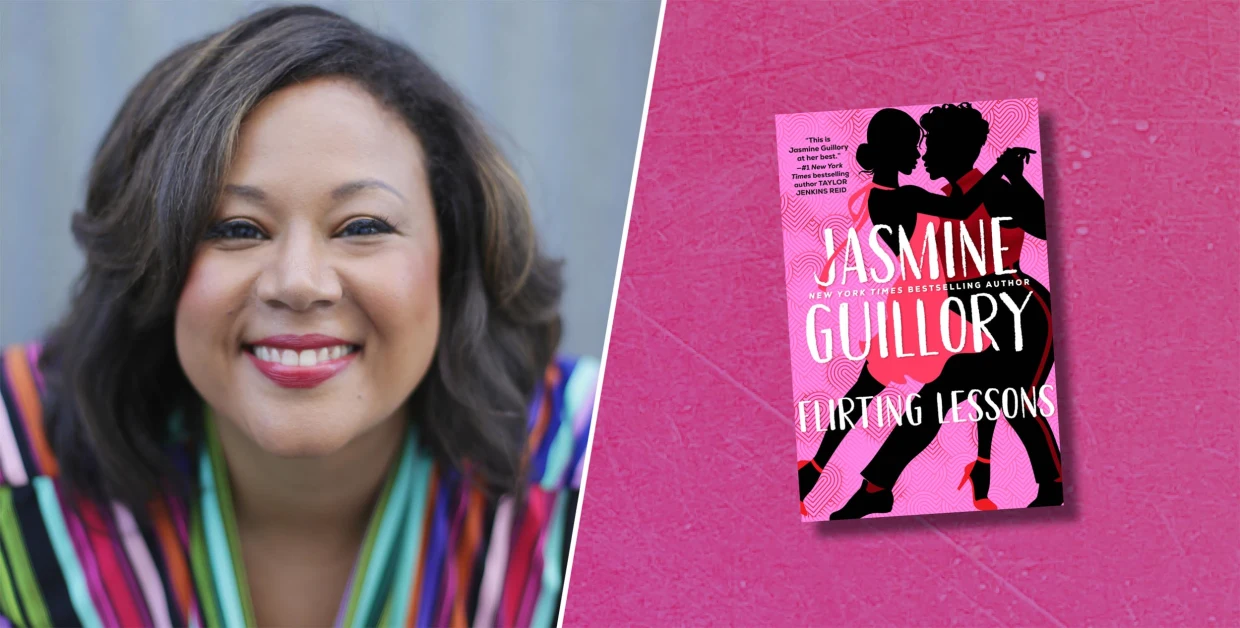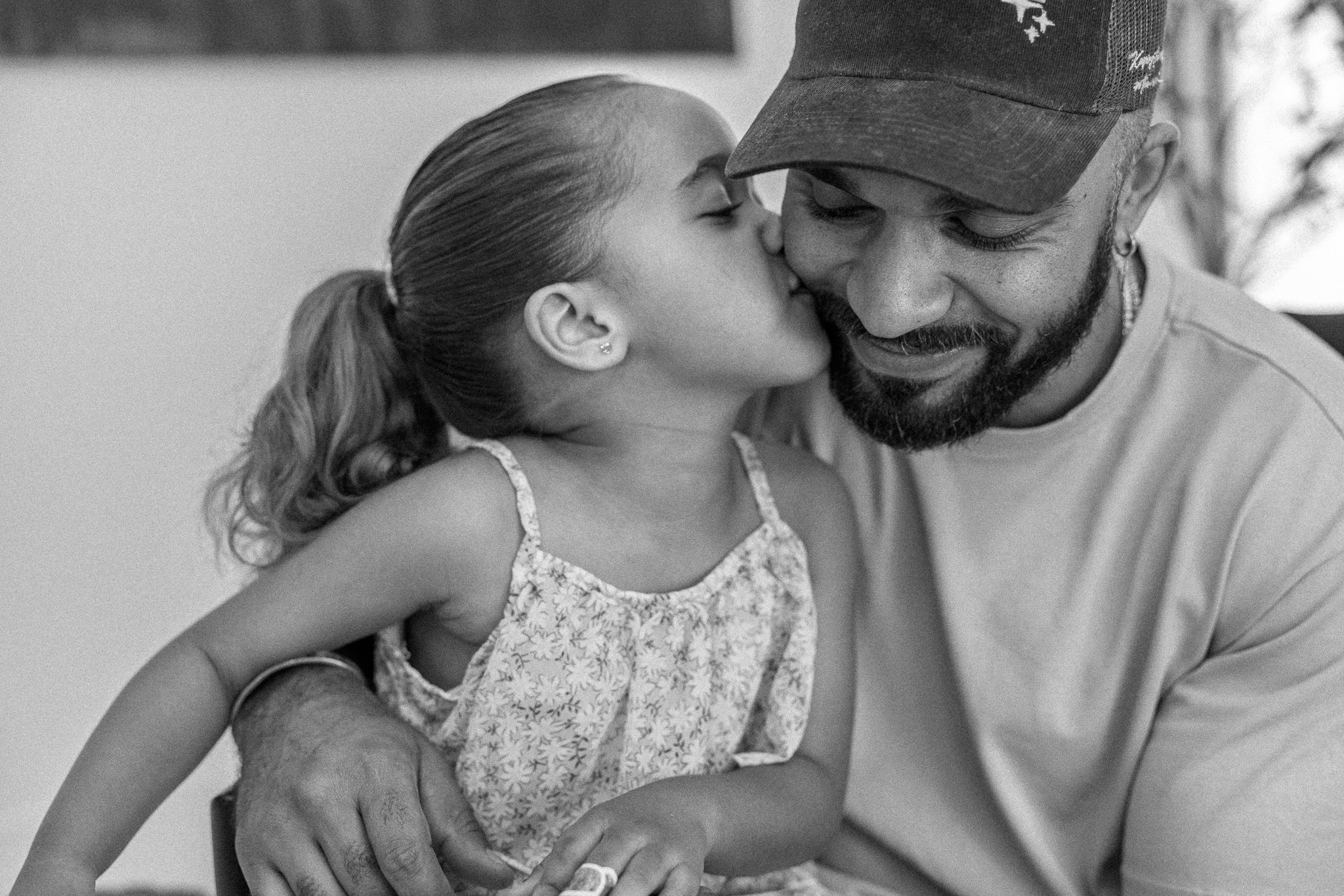
Untitled – 2020-03-28T144615.638

Laray Dyer and family (Photo courtesy of David Trott, Jr.)
It’s mid-March, and I’m more anxious than I’ve been in a long time. According to 11 Alive News, cases of COVID-19 in Georgia have increased with the number of deaths heightening as well. But it’s not just me and presumably, my fellow Georgians, the nation is nervous — the world is concerned. Coupled with these concerns, my husband Dave is packing his bags for Jamaica to attend the funeral of his dear stepmother despite the Department of State’s advisory to U.S. citizens to avoid all international travel.
I was too worried to travel with my beautiful daughter, Melody, a sassy toddler with enough personality to carry a room. Along with my handsome son, Malakai, a happy baby who shows off his two teeth and gums at every opportunity. It’s worth mentioning a five-year-old New Jersey child had been diagnosed with COVID-19 virus just days prior. I was disappointed that I could not bring myself to support my husband and worried about the high-level of close contact he was about to encounter.
For the sake of my mental health and sanity, I ultimately chose not to stay at home alone with my children.

Laray Dyer and family (Photo courtesy of Simply Corey Photography)
More than anything, I was concerned about being left alone with my children. I appear to have it all together, at least on the outside. But when you begin to peer beyond how I look; a duality of sorts comes to light. Despite my background, what seems to be more accurate to my day-to-day experience is that I am a Black woman who suffered a severe case of postpartum depression and anxiety (PPD/PPA); and I’m still recovering.
Recently, I experienced one of the most common medical complications during and after pregnancy. According to the Centers for Disease Control and Prevention, “postpartum depression estimates…can be as high as 1 in 5 women.” Moreover, PPD disproportionately affects African American women than other groups. PPD typically arises from a combination of hormonal changes, psychological adjustment to motherhood, and fatigue. The signs and symptoms of PPD can be physical, emotional, and/or behavioral.
Related: How We Survived Postpartum Depression
For me, it was all the above. I remember walking into the doctor’s office for my six-week check-up like it was yesterday. Baby in tow, I was a nervous wreck. My anxiety was at an all-time high; I wasn’t eating nor sleeping.
In fact, I was so exhausted that I wanted to kill myself. I had so much on my mind but could hardly think straight. I felt despondent and even more overwhelmed. I was worried about returning to work because I didn’t know if I’d be able to maintain my workload. Overall, I was a walking train wreck.
It’s no wonder that I was irritable beyond measure, not wanting to be bothered with anyone or anything, including my sweet baby. I just wasn’t myself and didn’t feel confident that I could return to business as usual. When my doctor (Dr. Martinuzzi) walked into the room, tears instantly began to fall. I had a long history with him.
You are not alone, and I hope that fear won’t keep you from getting the treatment that we all deserve and often need.

Laray Dyer and family (Photo courtesy of Simply Corey Photography)
After seven days of severe preeclampsia following the birth of my daughter, Dr. Martinuzzi made the call that finally tamped down my blood pressure (I’m convinced he saved my life). He also shepherded me through a previous miscarriage and advised my husband and I on conceiving again.
Dr. Martinuzzi warmly greeted me and helped me unpack my concerns. He gave me a questionnaire to take and then left the room. When he returned, he said, “Your score is terrible! Do you know that you’re depressed?”
Rather than coming to terms with this reality, I explained to him that it was time for me to return to work. In other words, I didn’t have time to be depressed! And he confirmed what I already knew — I was in no condition to work. Dr. Martinuzzi equipped me with every resource that I would need to overcome PPD.
Related: How Postpartum Depression Sparked Brittany Giles’ Boss Moves as a Wellness Entrepreneur
He instructed me to resume antidepressants and seek the guidance of psychiatry to adjust my medication, as needed. He gave me the number for psychotherapy and stood by as I called to schedule a consultation for talk therapy. Finally, he called my husband and explained the seriousness of my condition. This condition ultimately led to outpatient psychiatric care with Transitions Behavioral Health Programs, a part of Emory University Hospital at Wesley Woods.
Being a mom isn’t easy and can sometimes feel insurmountable. For the sake of my mental health and sanity, I ultimately chose not to stay at home alone with my children. I booked our flight at the 11th hour, packed scarves for the kids, gloves, and a mask for myself, and partnered with my husband to brave the airways amidst COVID-19. I also packed my mood stabilizer and medication for anxiety because the last time I was non-compliant, it led me back to outpatient psychiatric care.
And I made a point to get some sleep, which wasn’t much, but it was intentional and restful. But most importantly, I managed my stress because I tend to be more tolerant in high-stress situations. I share my story not to encourage women suffering from PPD to take risks during this perilous time; instead, I invite us to find ways that give us peace within each moment and indulge therein. You are not alone, and I hope that fear won’t keep you from getting the treatment that we all deserve and often need.
Related Articles
Discover why Jasmine Guillory’s latest novel Flirting Lessons is a must-read—and how the author continues to redefine modern romance with layered Black heroines, real emotional depth, and Black literature that feel both magical and true.
Bozoma Saint John talks Black motherhood, grief, self-love, and finding joy again. Don’t miss her powerful conversation on building legacy and living boldly.
Tyler Lepley shows the beauty of Black fatherhood, blended family life with Miracle Watts, & raising his three children in this Father Noir spotlight.
Featured Articles
When Elitia and Cullen Mattox found each other, they decided that they wanted their new relationship together, their union, to be healthier and different.
Celebrate their marriage and partnership with the release of the documentary “Time II: Unfinished Business”
Our intent is to share love so that people can see, like love really conquers everything. Topics like marriage and finance, Black relationships and parenting.
HEY CHI-TOWN, who’s hungry?! In honor of #BlackBusinessMonth, we teamed up with @eatokratheapp, a Black-owned app designed to connect you with some of the best #BlackOwnedRestaurants in YOUR city – and this week, we’re highlighting some of Chicago’s best!
Meagan Good and DeVon Franklin’s new relationships are a testament to healing, growth, and the belief that love can find you again when you least expect it.
The vision for our engagement shoot was to celebrate ourselves as a Young Power Couple with an upcoming wedding, celebrating our five year anniversary - glammed up and taking over New York.











